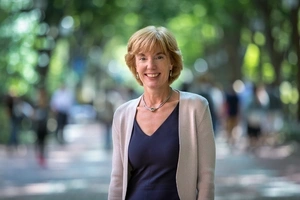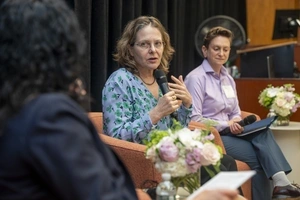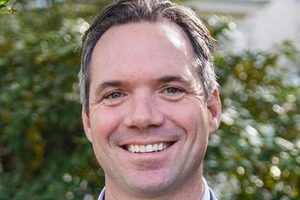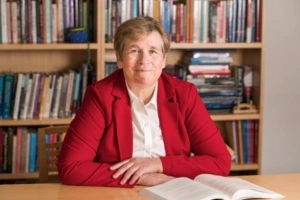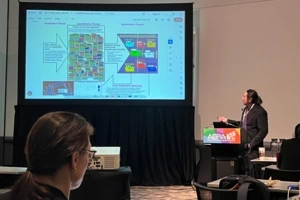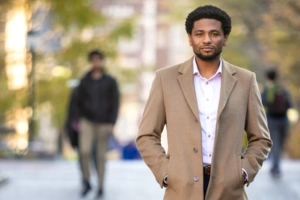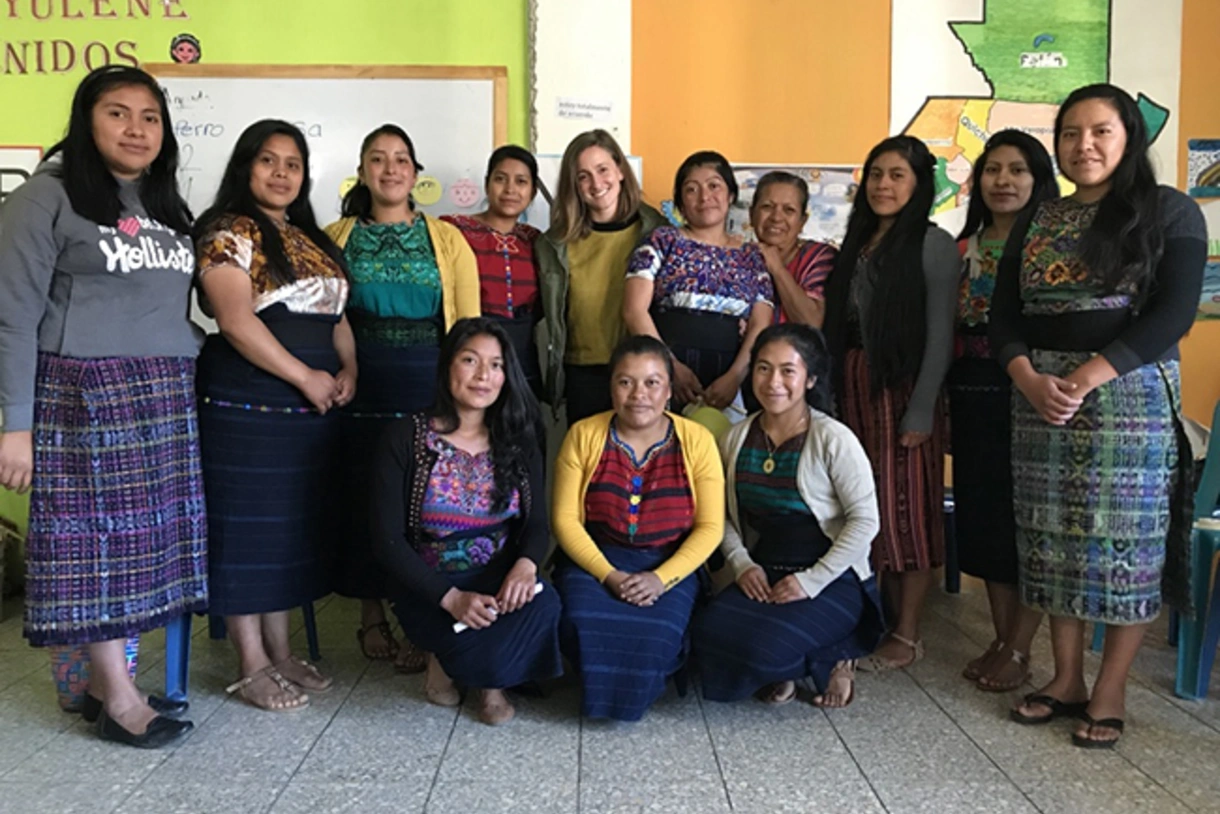
When Briana Nichols first arrived in Guatemala, she had an idea of what she wanted to study: migration, specifically youth migrant return. Thankfully, she says, the community had something else in mind.
“As I started working within communities of extensive migration, the thing they cared about the most was what it took to not migrate,” she reflects.
This revelation took her down an avenue of research into migration that isn’t typically studied.
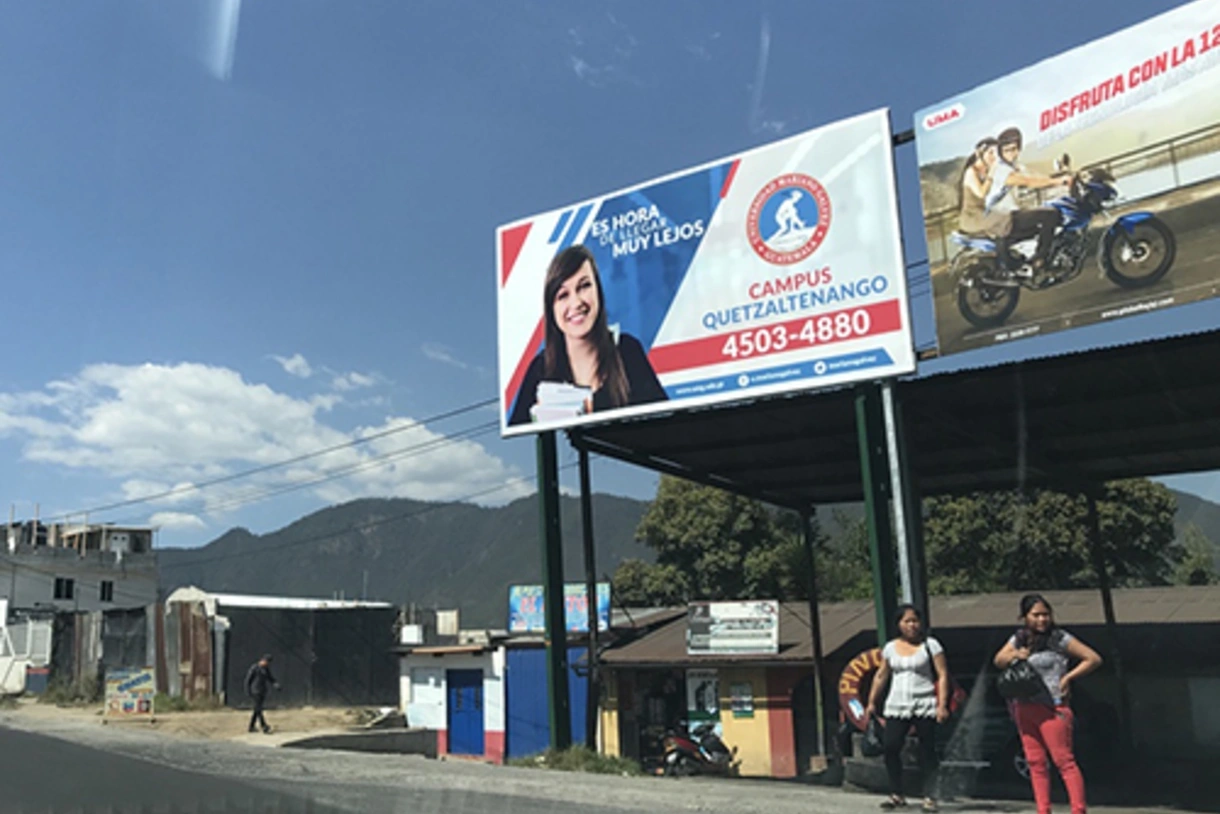
Nichols is a joint doctoral candidate in Penn GSE’s Education, Culture, and Society program and the University of Pennsylvania’s anthropology department. A former Chicago public school teacher, she had witnessed firsthand the challenges her undocumented students faced in the US. Shortly after she arrived at Penn, the youth migration crisis started dominating the news. Her research, which comes from deeply embedded ethnography, focuses on the experiences of young people in high-migration communities and the institutions and pathways that structure those experiences.
“An organizer I was close with in Chicago started talking to me about how they didn’t really know what was happening to these young people after they were processed through the system,” Nichols remembers.
After conversations with people involved in the institutions of migrant youth detention and processing in the United States, it became clear these institutional actors had very little understanding about the lives of these young people before their migratory trajectories — nor what happened to them after they were deported back to their countries of origin.
An ethnographer and anthropologist by training, Nichols, along with her young daughter, spent 11 months on the ground in Guatemala learning about the experiences of young people who live in high-migration, indigenous communities. She conducted research into the intersection of migration and education collaboratively with members of the community, who in turn helped shape the direction of her research by sharing what was important to them — and what they wanted people to understand about their lives.
“Many institutional actors who care about migration (for example, the International Organization for Migration, US Customs & Border Patrol) have positioned educational access as the solution to the ‘problem’ of youth migration,” explains Nichols.
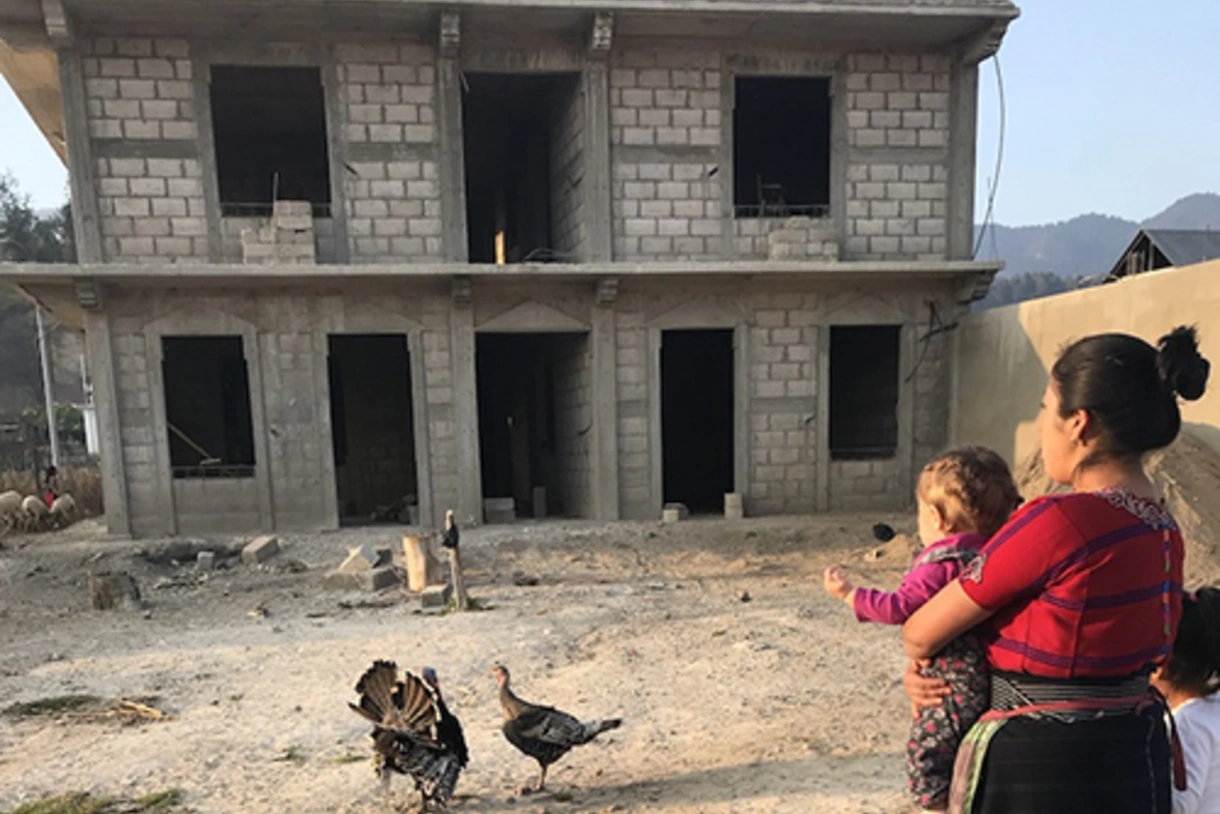
She notes that many policymakers talk about addressing root causes without understanding the perspective of the people living them, and she cautions against imposed notions of the root causes of migration. For example, she discovered even when indigenous youth in Guatemala are able to access education, it is typically subpar and does not prepare them adequately for higher education opportunities. For the few youth who are able to pursue continued education, jobs are scarce in their home communities — thus educational access does not really serve as a means by which young people can remain in their communities.
Earlier this year, her paper Nothing is easy: educational striving and migration deferral in Guatemala was published in the Journal of Ethnic and Migration Studies. It addresses some of the core ideas that she explores in her dissertation, chief among them that formal educational access does not actually prevent migration. Nichols notes that many young people are actively seeking to not migrate, because they have seen the negative impacts that migration can have on the community. In her paper, she writes that many young people view their education as an accomplishment, even if they are unable to find work and have to migrate, because they are “in the process of achieving something their ancestors were not allowed to.”
Her research grapples with this idea that participating in the formal education system can be empowering for young people even if their experiences in the system are rife with anti-indigenous racism and the degrees they receive ultimately do not result in employment.
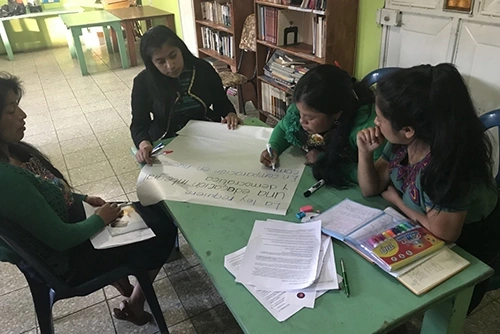
Nichols is currently developing two more articles based on her research, slated to be published this year. In December she defended her dissertation, "Imagining un futuro digno: Indigenous Youth Striving for Non-Migration in Guatemala.” She is staying on at Penn to teach two classes in the spring (Anthropology of Education and the Master’s Seminar in Education, Culture, and Society) before entering the academic job market. She plans to continue her work within the Guatemalan community where she has deep ties and hopes to eventually land a position that enables her to combine research, community work, and teaching.
“I hope that my work highlights the importance of paying attention to migration not just as a thing that’s happening at the border or within a national context, but within a really diasporic context,” she says. “It’s important to give attention to and be aware of what’s happening on the ground in places where people are leaving from, and not just the stories of trauma and horror, but also the stories of how people make their everyday lives. Those stories are valid and provide information about the ways in which migratory processes unfold.”
Media Inquiries
Penn GSE Communications is here to help reporters connect with the education experts they need.
